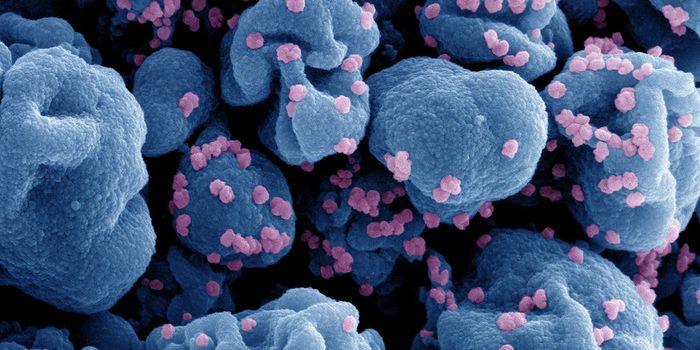Cross-Reactive Antibodies Don't Protect Against COVID
Did you know that hundreds of viruses can cause the common cold? Rhinovirus, adenovirus, and coronavirus infections can result in the sniffles, sneezing, and watery eyes associated with having the seasonal disease.
As the pandemic began to gain momentum, scientists hypothesized that being exposed to seasonal coronaviruses that cause the cold could also potentially provide individuals with immunological protection against the emergent SARS-CoV-2.
Now, a study led by microbiologists from the University of Pennsylvania has shown that, unfortunately, antibodies produced by prior coronavirus infections cannot neutralize the strain that causes COVID-19. The research was published in Cell.
"We found that many people possessed antibodies that could bind to SARS-CoV-2 before the pandemic, but these antibodies could not prevent infections," said the study lead, Scott Hensley.
"Although antibodies from prior coronavirus infections cannot prevent SARS-CoV-2 infections, it is possible that pre-existing memory B cells and T cells could potentially provide some level of protection or at least reduce the disease severity of COVID-19. Studies need to be completed to test that hypothesis."
The scientists screened hundreds of blood samples obtained from individuals before the pandemic hit to pan for cross-reactive coronavirus antibodies—Ones that could bind to and inactivate both regular coronaviruses and SARS-CoV-2. Though 20 percent of these antibodies could target antigens on both classes of viruses, these cross-reactive antibodies could not prevent COVID-19.
Though it was suspected that the presence of high levels of cross-reactive antibodies conferred children with better protection against COVID-19 symptoms, this study proved this not to be the case. For now, the reasons why some people experience the symptoms more severely than others are still up in the air, although antibodies are not likely contributors.
The authors call for follow-up studies to take a closer look at how other immune components such as T cells influence cross-reactive protection after a common cold.
Sources: Eurekalert via University of Pennsylvania, Cell.









